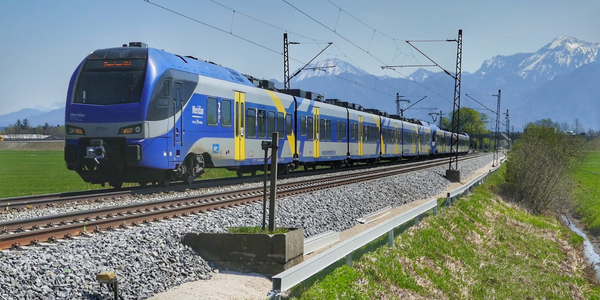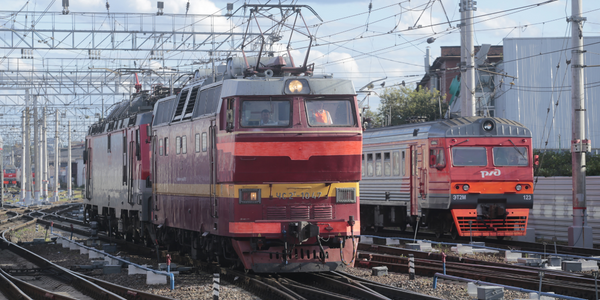Customer Company Size
Large Corporate
Region
- Europe
Product
- IBM zEnterprise EC12
- IBM DB2 for z/OS
- IBM DB2 Administration Tool for z/OS
- IBM DB2 Automation Tool for z/OS
- IBM DB2 Cloning Tool for z/OS
- IBM DB2 High Performance Unload
- IBM DB2 Utilities Suite for z/OS
- IBM InfoSphere Change Data Capture for z/OS
- IBM WebSphere Application Server for z/OS
- IBM WebSphere Application Server for Linux on System z
- IBM WebSphere DataPower XC10 Appliance
- IBM WebSphere Enterprise Service Bus for z/OS
- IBM WebSphere MQ for z/OS
- IBM z/OS
Tech Stack
- IBM zEnterprise EC12
- IBM DB2 for z/OS
- IBM WebSphere Application Server for z/OS
- IBM WebSphere Application Server for Linux on System z
- IBM WebSphere DataPower XC10 Appliance
Implementation Scale
- Enterprise-wide Deployment
Impact Metrics
- Revenue Growth
- Customer Satisfaction
Technology Category
- Application Infrastructure & Middleware - API Integration & Management
- Application Infrastructure & Middleware - Data Exchange & Integration
- Application Infrastructure & Middleware - Middleware, SDKs & Libraries
- Analytics & Modeling - Real Time Analytics
- Networks & Connectivity - Network Management & Analysis Software
Applicable Industries
- Railway & Metro
Applicable Functions
- Sales & Marketing
- Business Operation
Use Cases
- Public Transportation Management
- Real-Time Location System (RTLS)
- Transportation Simulation
Services
- System Integration
- Software Design & Engineering Services
About The Customer
The customer in this case study is a European railway operator that manages a very large railway system, which includes several high-speed routes. The operator was facing stiff competition from low-cost airlines and coach operators, and was looking for ways to boost ticket sales and compete more effectively. The operator recognized that the key to regaining ground from its rivals lay in offering customers more attractive prices and promotions, as well as an easier way to book and plan journeys. The operator wanted to better engage with its customers by launching more desirable travel options at attractive prices, and to ensure that its offerings are always up-to-date. The operator also wanted to ensure that its ticketing application could withstand increased demand and stay available even when tens of thousands of users were connected at once.
The Challenge
The European railway operator was facing stiff competition from low-cost airlines and coach operators. The company realized that its existing service offerings were out-of-touch with the way that its customers wanted to travel. More and more travellers were turning to the web and mobile channels to book tickets, find information and plan journeys. The operator recognized that the key to regaining ground from its rivals lay in offering customers more attractive prices and promotions, as well as an easier way to book and plan journeys. By developing service offerings that truly stand out and giving travelers greater flexibility, the company hoped to boost ticket sales and steal a march on its competitors. The company wanted to better engage with its customers by launching more desirable travel options at attractive prices, and to ensure that its offerings are always up-to-date.
The Solution
The operator enhanced its web and mobile experience by streamlining processing of customer queries, enabling real-time service updates for travelers, and creating flexible journey-planner solutions. The company has built a robust IT landscape to support top performance and round-the-clock availability for its ticketing application, which runs on IBM® WebSphere® Application Server for z/OS® on an IBM zEnterprise® EC12 mainframe server. At the core of the solution, the company stores its business-critical information, including ticket sales data, on IBM DB2® databases on the same zEC12 server. All transactions for ticket sales – from online and mobile to sales points at stations and travel agencies – are managed on the EC12 mainframe using IBM WebSphere Application Server for z/OS. Once the tickets have been booked and created within the z/OS environment, payment transactions are pushed to WebSphere Application Server on Linux for System z®, still on the same physical EC12 mainframe, which handles all the necessary security checks and brokers the transactions with external payment processor companies.
Operational Impact
Quantitative Benefit

Case Study missing?
Start adding your own!
Register with your work email and create a new case study profile for your business.
Related Case Studies.

Case Study
Building Smart IoT-Connected Railways
• Difficult environment. Communications equipment on trains must function properly in harsh conditions, such as environment temperatures ranging from -25°C to +85°C, according to the EU standard EN50155.• Railway regulations. All products in a train must adhere to strict standards, relating to working vibration, power consumption, and lifetime.• Lengthy process. Time to market in the railway industry can take years from concept to mass production, so product design requires a solid long term vision.

Case Study
Connected Transportation: A Smarter Brain for Your Train with Intel
A modern locomotive, for example, has as many as 200 sensors generating more than a billion data points per second. Vibration sensors surround critical components, video cameras scan the track and cab, while other sensors monitor RPM, power, temperature, the fuel mix, exhaust characteristics, and more.Most of today’s locomotives lack sufficient on-board processing power to make full use of all this data. To make matters worse, the data from different subsystems, such as the brakes, fuel system, and engine, remain separate, stored in isolated “boxes” that prevent unified analysis. The data is available, but the technology needed to process it in the most effective manner is not. As new sensors are added to the machine, the problem escalates.

Case Study
Using LonWorks to Keep Acela Trains Zip Along
Canadian transportation company, Bombardier was tasked with building a bullet train system on rails that were designed for lower speed trains. In addition, they had to ensure safe and optimal operation at high speeds, maximize train uptime and enhance communication with passengers.

Case Study
Delhi NCR Metro: A Mobile App Revolutionizing Public Transportation
The Delhi NCR Metro, a major public transportation system in India, was facing a challenge in providing accurate and comprehensive information to its daily commuters and tourists. The lack of a centralized platform for information about metro station details, train schedules, fare details, parking, elevators, and tourist locations was causing inconvenience to the users. The challenge was to develop a mobile app that could provide all this information accurately and conveniently. The app needed to be equipped with GPS services to help users find the nearest metro and renowned locations. An interactive map was also required to assist travelers who were familiar with the metro lines. The goal was to provide maximum information with minimum input.

Case Study
Automated Railcar Inspections Increase Security and Revenue
Providing industry and government customers with intelligent inspection, automation, safety, and security solutions, Duos Technologies Group, Inc. (“Duos” or the “Company” - Nasdaq: DUOT) continually pushes the boundaries of IT. To keep pace with expanding AI-enabled data capture analytics for its edge railcar inspections, the company chose the latest Dell EMC PowerEdge servers.Duos Technologies’ challenge was finding a way to leverage technology as a force multiplier to meet customer requirements for a better, faster inspection process for trains running at full speed. Duos developed innovative data analytic solutions with AI at the edge to conduct more reliable railcar inspections, which are available 24/7/365 in all climates and conditions.




